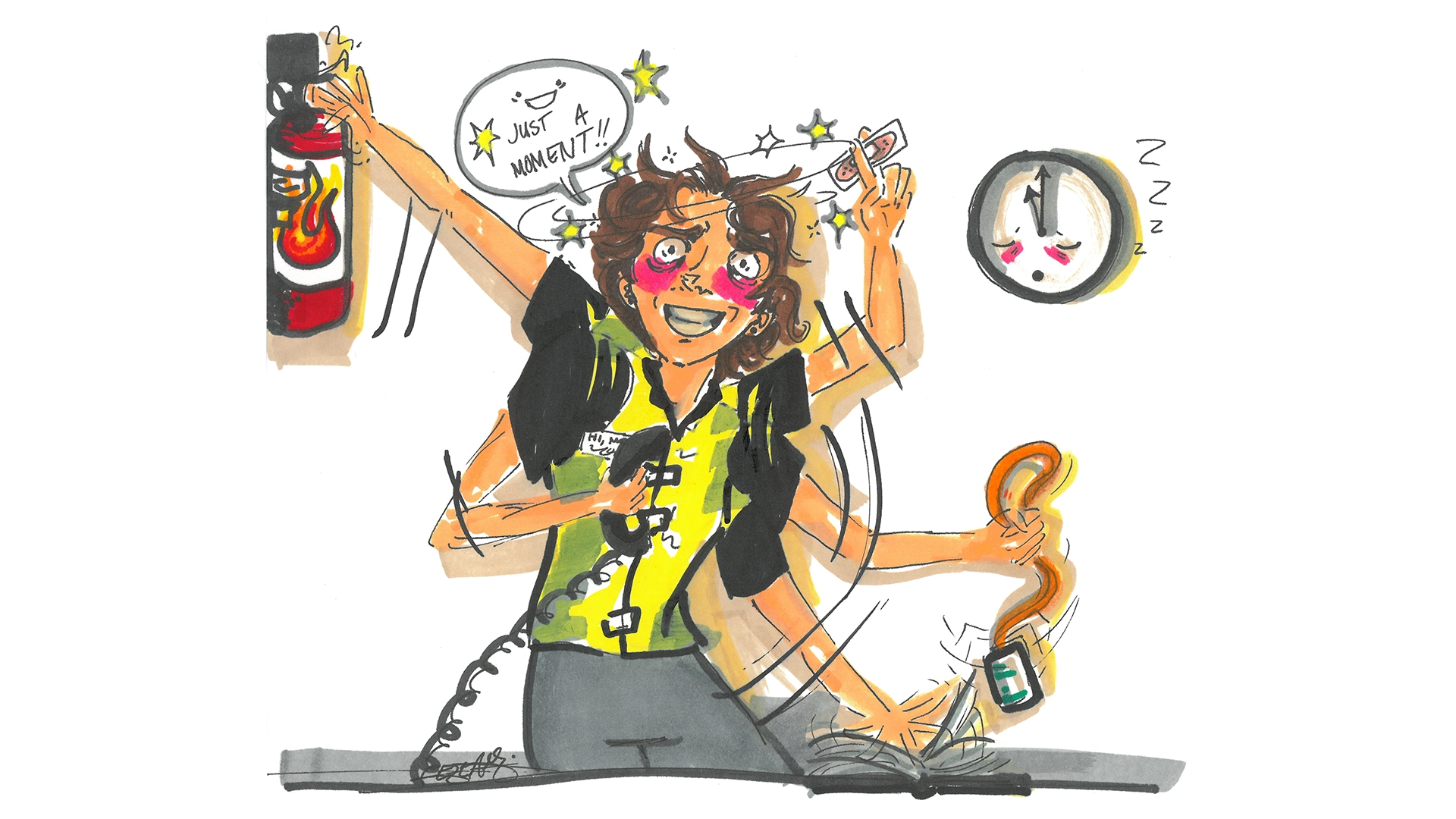July 2025 marked a year since the implementation of the community service officer (CSO) model within ANU residential colleges, prompting a review of the model and revealing concern amongst students. In March and April this year, residents, staff, and stakeholders were able to contribute to a review of the model.
CSOs were introduced last year to replace the role of Duty SR within residential halls. Previously, senior residents (SRs) who also fulfilled the role of residential mentors, would work on a roster to take on “duty shifts” after the hall’s reception closed, taking on any issues that emerged. They were then reimbursed through the SR scholarship which covered 100% of their rent. Currently, salaried CSOs from outside the hall take on this role of after hours care while SRs (now Residential Mentors) take on a purely pastoral care role for half of the previous scholarship.
The model has prompted significant backlash. In August last year, 65 SRs signed an open letter to the ANU calling for significant changes to the model highlighting 6 key demands:
- That at least 1 Community Support Officer is assigned to each hall for every shift to reduce wait times for calls ranging from lockouts to critical incidents.
- That CSOs are better integrated into the community through paid attendance at Bush Week events and ongoing community education initiatives, to help overcome low resident trust towards staff members outside of their communities.
- That the Residential Experience Division implements targeted, hall-specific training for CSOs due to the unique character of our different residential halls.
- That lockout fees are abolished, since the current rationale that SRs are inconvenienced by lockout calls no longer applies.
- That the SR scholarship remains the same, or that any reductions are minimal, in order to retain passionate and experienced SRs into the future.
- That transparent and accountable feedback mechanisms to review the 24 hour model are implemented to best promote student safety and wellbeing.
Following the release of this letter, no changes were implemented. The SR scholarship was cut at the beginning of 2025 when the role was replaced by RMs.
Students have continued to raise significant concerns with the model, with one source within the CSO program highlighting “the complete lack of training and professionalism by contracted staff members”.
Students have expressed discomfort around training completion and the effectiveness of the online training which “shows Unilodge as a brand, not as an organisation with duty of care over young and vulnerable people.”
ANU maintains that “CSOs are also trained in personal safety, escalation protocols, first response to incidents such as fire”.
However, a previous CSO alleges that they “did not receive explicit fire training amongst other things”.
There have been further concerns about the number of residents each CSO is expected to manage. Between 10pm and 8am, one CSO manages two halls, or up to 1,400 residents. +
Further, the distribution of the halls have resulted in long wait times in emergency situations. Ursula Hall and Yukeembruk Village are managed by the same CSO, with a six minute walk between them.
ANU maintains that “CSO workloads are carefully structured to ensure coverage across residences while maintaining resident safety” and that “workload distribution takes into account shift patterns, residence proximity, data on incidents, and the need for a timely response to incidents”.
Concerns have been raised about the access CSO’s have to students’ phone numbers due to the calls they receive being made on personal devices. Allegations have been made of inappropriate conduct within residences.
When asked for comment, ANU reiterated, “The wellbeing and safety of residents and staff are always our highest priority. CSOs are trained to provide support with care, respect, and confidentiality, ensuring that residents feel safe and comfortable when reaching out for help. Professional boundaries and privacy are central to the CSO model and are covered in their training and as a condition of their employment contract.”
Despite the issues raised, ANU reported positive outcomes from the 1 year review of the model, stating that “residents indicated that the service was easy to access, and they were satisfied with the response time and quality of support. Students also expressed a greater feeling of safety knowing that the residences are staffed 24/7.”
ANU claims that “Overwhelmingly, staff who participated in the survey felt the CSO was an effective model, particularly in preventing student leaders being exposed to critical incidents and mitigating conflicts amongst students.
Staff felt as though the model enabled student leaders to focus on building community rather than incident response and ‘policing’ the community.”
Woroni will continue to cover the transition to the CSO model for residential halls and concerns raised by students living on campus.
We acknowledge the Ngunnawal and Ngambri people, who are the Traditional Custodians of the land on which Woroni, Woroni Radio and Woroni TV are created, edited, published, printed and distributed. We pay our respects to Elders past and present. We acknowledge that the name Woroni was taken from the Wadi Wadi Nation without permission, and we are striving to do better for future reconciliation.
